We love checking in with our mentors because as we listen to them talk, we hear these “nuggets of truth” –helpful wisdom that comes from their years of experience, words our students need to hear—and we always learn something new in the process. Our recent conversation with Recording Connection mentor Zack Phillips was no exception. The founder of Freq Lab Recording in San Francisco, CA, Zack is an industry veteran who has worked with such clients as The Kooks, Jessie Ware, Talib Kweli, The Game, Washed Out, and Comedy Central, among many others.
During our conversation, Zack weighed in on such topics as what he looks for in an apprentice and/or employee, what he thinks engineers must know in order to be hire-able, and how he maintains relationships with most of his former students. We’ve mined some of the best parts of that recent conversation to share with you here.
ON WHY HE DECIDED TO BECOME A RECORDING CONNECTION MENTOR:
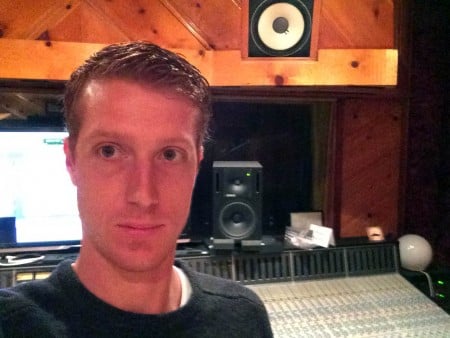
Recording Connection mentor Zack Phillips
“I think that really, more than anything else, it’s people who have taken the time to show me how to do things that made my career possible. And so I think for that reason, I really wanted to be able to give back and help pass along the information that I was taught to other people that wanted to learn…My experience teaching for Recording Connection, it’s been quite a few years now that I’ve been doing it. It’s been an overwhelmingly a positive experience.”
ON THE BENEFITS OF LEARNING ONE-ON-ONE IN THE STUDIO VERSUS A CLASSROOM:
“In a larger classroom setting, there’s always one or two kids who are kind of ahead of everyone else and sort of ends up pushing things ahead before maybe everything has really had a chance to sink in. And on the flip side of that, there’s always the couple kids that are goofing off and not taking things seriously, they kind of hold up the learning for everyone else. I think doing the one-on-one approach has really allowed things to move along at the speed that the information is being absorbed at. I think that’s really vital. But also I think learning in a traditional sort of classroom kind of environment, you learn with whatever equipment they have on hand which can be outdated and maybe not necessarily what you will find in the field. I think working with real professional engineers in their working environment, you’re much more likely to learn on equipment that actually is being used and that you might find is available when you go to start working.”
ON THE IMPORTANCE OF MAKING CONNECTIONS WHEN PURSUING AN AUDIO ENGINEERING CAREER:
“As an engineering producer, you’re kind of—in a lot of ways, you’re your own brand. Even if you work for a larger studio… [The question is], Why is somebody going to pick you to do a record rather than somebody else? I think it’s important, not only the work that you do on a technical standpoint of, you know, how your record sounds, but how you are to deal with and the customer service that you offer. I think when you start to build a connection directly with the client, be that the label or an artist, you are much more likely to get repeat work. If you’re working as a freelancer engineer, having connections with different studios that allows you to maybe get a better rate and make a little bit more money in the transaction. So I think that the more connected you are, the busier you can stay and the more money you can make.”
ON WHAT ASPIRING PRODUCER/ENGINEERS MUST KNOW IN ORDER TO BE EMPLOYABLE:
“I would say Pro Tools is definitely like the biggest constant. No matter what type of studio environment you’re working in, if you’re dealing with recording and mixing professionally, Pro Tools is a huge part of what you’re doing. I think that if you really master that, you can adapt to any other environment…And then editing. Editing is one of those things that is not talked about as much as maybe recording or mixing, I think partially because it’s not as glamorous. I think artists themselves don’t want to put extra emphasis on the idea that somebody had to edit their performances to make it what it is. But that’s a huge part of it and I think as somebody who’s making records, your editing game should be on-point. You should really be able to take a few pretty good performances and stitch something together that’s amazing.”
ON WHAT HE LOOKS FOR IN APPRENTICES, OR WHEN HIRING SOMEONE:
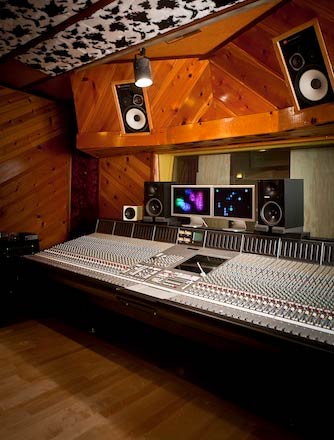
Control Room in Freq Lab Recording
“I typically look for somebody who’s really ambitious and self-motivated, who’s going after it and kind of like they’re going to get there whether it’s with my help or somebody else or on their own. And they are looking for some support and someone to really show them the direction, but they’re not looking for someone to spoon-feed them. I think it’s most rewarding working with people where you can show them a little something and then the next time you see them they kind of just ran with it and you get to see the progress they’re making. I think that’s definitely the most rewarding. I like working with people that are really passionate about music and people who are humble and are willing to put in some hard hours and really do the work.”
BRAGGING ON SOME OF HIS STUDENTS…
“Jeff Gold…came through the program, I don’t know, I think he graduated about six months ago. [He works at] Hyde Street Studios, and he’s been doing a great job over there. He’s starting to work on his own sessions and he’s become quite a formidable assistant engineer, and works on pretty big projects. He’s working with Nathan Winter who has got the Grammy for some work that he did with Train…I see big things happen for him in the next few years…[And] Cameron Adair—he was here a couple of years back, and he ended up sort of becoming a freelance producer and engineer. He worked on a record with my business partner, Brian DeLizza, and they’ve put a record. It’s called
CA All Day, and it’s a really amazingly produced record. He did a great job on it.”
ON STAYING IN TOUCH WITH HIS FORMER APPRENTICES:
“We’ve had students graduate and go in a lot of different directions. We’ve had some guys that have done recording and end up in radio as board operators or working as engineers in competing studios. We’ve got a lot of guys that are doing freelance engineering and producing things. I stay in close contact with the majority of people who I’ve had the opportunity to work with, and it’s just really exciting to see what people are doing and where their careers are taking them…I get a handful of emails and calls every week about what people are doing and, ‘Hey, I’m going on the road with this band. What’s some gear that I should bring?’ Or, ‘What do you think of this project I’m working on?’…Or, ‘Do you know a good mastering guy?’ Plus, it’s really exciting and rewarding, and I feel like the more students that I come into contact with, the more I really get to see where people excel and how they get into the field.”
ON WHY HE STILL GETS EXCITED ABOUT COMING INTO THE STUDIO EVERY DAY:
“I think it’s mainly just my deep love of music. I enjoy constantly hearing things that I haven’t heard before or haven’t put together in the same way. And, you know, it’s really a simple pleasure just for music and enjoying it. I produce my own music, but I think I chose engineering because I really enjoy the collaboration of working with somebody else on a project. You know, hearing their ideas and where they are taking things gets me inspired, and I start to help shape that and bring it along. And I think there is this sense that at the end of the day, the product that you’ve created is something that’s bigger than the sum of all its parts.”

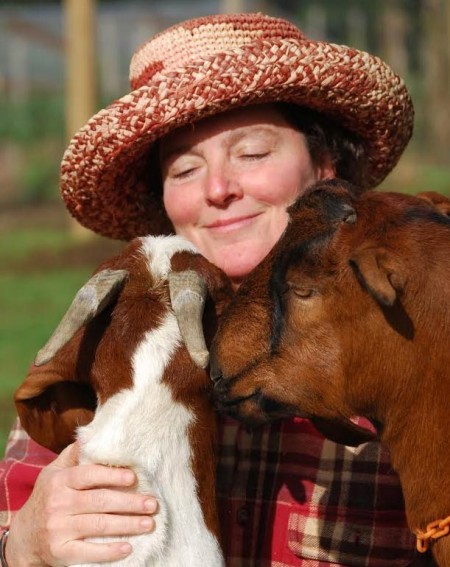
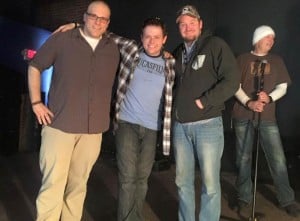
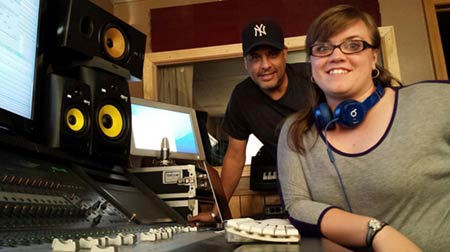
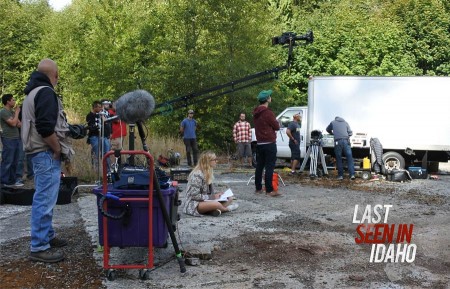



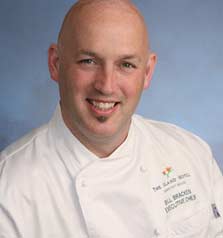 “Traditional culinary education to me is the apprenticeship mentorship approach. This is the way our culinary industry started out. I believe the mentorship approach to culinary education is a sound one. The profit loss statement of every culinary operation looks to productivity and efficiency as its number one priority. Having to re-teach culinary graduates is not only inefficient but also costly and time-consuming”
— Bill Bracken, Owner of “Bracken’s Kitchen” Food and Beverage Consulting, Los Angeles, CA
“Traditional culinary education to me is the apprenticeship mentorship approach. This is the way our culinary industry started out. I believe the mentorship approach to culinary education is a sound one. The profit loss statement of every culinary operation looks to productivity and efficiency as its number one priority. Having to re-teach culinary graduates is not only inefficient but also costly and time-consuming”
— Bill Bracken, Owner of “Bracken’s Kitchen” Food and Beverage Consulting, Los Angeles, CA



